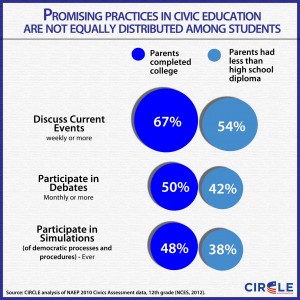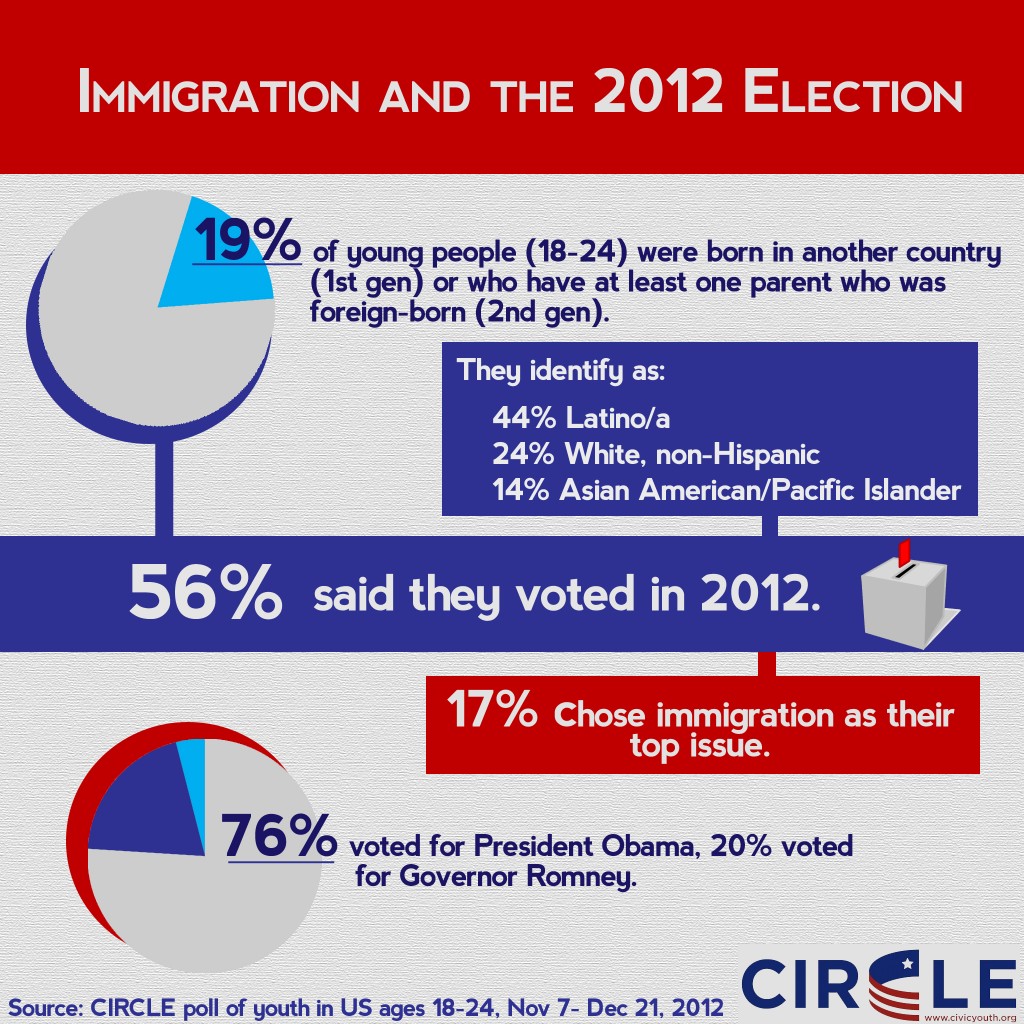Civic Knowledge
This series of research products addresses what young Americans know and do not know about politics and related topics and how civic knowledge can be fostered in various institutions.
RSSCivic Knowledge
Discussion, Debate, and Simulations Boost Students’ Civic Knowledge, But Gaps Remain

Ten years ago, the Civic Mission of Schools report (Gibson & Levine, 2003) clarified goals of civic education and identified six “promising practices” of civic education pedagogy. Three of these practices were measured on the National Assessment of Educational Progress (NAEP) Civics test in 2010: discussing current events, debating current issues (including controversies), and participating Read More >
Civics, digital badges and alternative assessment: Preparing students to be engaged citizens
With support from the S. D. Bechtel, Jr. Foundation, CIRCLE has released a working paper that explores digital badges and alternative assessments for civic skills, knowledge, and dispositions. This working paper, entitled “New and Alternative Assessments, Digital Badges, and Civics: An Overview of Emerging Themes and Promising Directions,considers digital badges as well as ePortfolios, rubrics, Read More >
Immigration and the 2012 Election

A new CIRCLE fact sheet uses post-election youth polling to examine young people’s views of immigration reform and how youth with recent immigrant backgrounds participated in the 2012 election. Only a relatively small portion of young Americans rated immigration as their top issue in the 2012 election, yet those young people overwhelmingly favored creating paths Read More >
High School Civic Education Linked to Voting Participation and Political Knowledge, No Effect on Partisanship or Candidate Selection
Most Young Voters Knew the Candidates’ Issue Positions MEDFORD/SOMERVILLE, MA – A large, national survey of young Americans released today shows that most young adults who voted in 2012 could choose an issue that was important to them and knew where the candidates stood on at least one (of two) relevant policies. Young Obama and Read More >
What the NAEP Civics Assessment Measures and How Students Perform
Only eight states currently test their students on American government or civics (usually as part of a much broader social studies test), and so relatively little is known about young people’s civic knowledge, skills, behaviors, and values. Given the paucity of state data, the federal National Assessment of Educational Progress (NAEP) in Civics receives predominant Read More >





